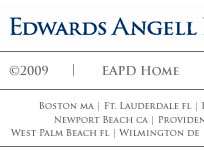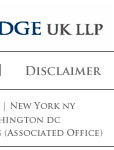
Mediation: No Longer Just an Alternative?
Much has been said and written about Alternative Dispute Resolution (ADR) since the Woolf Reforms in 1999 and arbitration in particular has seen a major increase in popularity among commercial clients. More recently, however, it has been the turn of mediation to take centre stage. In particular, the increasingly interventionist approach of some judges when its comes to mediation has raised eyebrows among commentators, academics, litigators and other members of the judiciary. Sceptics question whether the increasing pressure on litigants to mediate could result in the limitation of access to justice, thereby eroding the very fabric of our civil justice system and impinging upon our humans rights. This article examines this and other questions concerning the role of mediation within the court process.
Development of Judicial Approach to Mediation - A Brief Recap Since Woolf
The Arbitration Act and the Woolf Reforms raised the profile of ADR significantly during the 1990s. So it came as no surprise when Lord Woolf took the opportunity when giving judgment in the case of Cowl v Plymouth City Council [2001] EWCA Civ 1935 in 2001 to crystallise his position on the issue. Lord Woolf urged the Courts to "make appropriate use of their ample powers under the CPR to ensure that the parties try to resolve the dispute with the minimum involvement of the courts".
Leading Case - Halsey v Milton Keynes General NHS Trust
Despite support and promotion from Lord Woolf and others, it was not until 2004 and the case of Halsey v Milton Keynes General NHS Trust [2004] EWCA 3006 Civ 576 that the Court of Appeal was given the opportunity to provide proper guidance on the issues facing litigants and legal advisors in terms of mediation.
The Judgment in Halsey focused on three important areas which had been the subject of much debate. First, it provided guidance on the key issue of the potential repercussions for parties arising out of a refusal to mediate, primarily cost sanctions. Second, the court addressed the circumstances in which a refusal would be deemed unreasonable (thereby leaving a litigant exposed to potential penalties when costs come to be assessed). Finally, the court addressed the issue of the extent of judicial power to encourage or order mediation. Specifically, the question of whether an order to mediate (as opposed to simple encouragement) could potentially amount to a violation of Article 6 of the European Convention on Human Rights (ECHR) (Right to Fair Trial).
The Court of Appeal also made it clear that the burden is on the unsuccessful party to show why there should be a departure from the general rule that costs follow the event in circumstances where one party refused to mediate. Dyson LJ said that:
"The fundamental principle is that such departure is not justified unless it is shown (the burden being on the unsuccessful party) that the successful party acted unreasonably in refusing to agree to ADR."
In terms of the circumstances in which a refusal would be unreasonable, Dyson LJ saw the following factors as relevant: the nature of the dispute; the merits of the case; the extent to which other settlement methods have been attempted; whether the costs of ADR would be disproportionately high; whether any delay in setting up and attending ADR would have been prejudicial; and whether the ADR had a reasonable prospect of success.
In respect of the extent of court powers and Article 6 (effectively an academic issue at that time) Dyson LJ drew an important line in the sand when he said that:
"It is one thing to encourage the parties to agree to mediation, even to encourage them in the strongest terms. It is another to order them to do so. It seems to us that to oblige truly unwilling parties to refer their disputes to mediation would be to impose an unacceptable obstruction on their right of access to the Court."
He went on to say that:
"… it seems likely that compulsion of ADR would be regarded as an unacceptable constraint on the right of access to the Court and, therefore, a violation of Article 6 of the ECHR. Even if (contrary to our view) the Court does have jurisdiction to order unwilling parties to refer their disputes to mediation, we find it difficult to conceive of circumstances in which it would be appropriate to exercise it."
The Judgment in Halsey confirmed the Court of Appeal's view that mediation should be encouraged but not forced upon litigants.
Developments Post-Halsey
The Halsey approach has been followed and endorsed in several subsequent cases.
In Daniels v Commissioner of the Police of the Metropolis [2005] EWCA Civ 1312, the Court of Appeal found that it was entirely reasonable for a defendant, particularly a public body, to take the view that it would contest a claim (and therefore would reject any attempts to settle which were proposed), in order to deter other similar unworthy claims. It was decided that if defendants routinely faced unfounded claims, and chose to contest them, the courts should be slow to characterise that conduct as unreasonable.
In Hickman v Blake Lapthorn [2006] 3 Costs L.R. 452 Mr Justice Jack was asked to consider the position where a party consistently refused to negotiate or mediate because he believed that his opponent was unlikely to establish liability. Mr Justice Jack found that, although there was a strong possibility that mediation could have achieved a settlement similar to the eventual award, the main issue (following Halsey) was whether the defendant's refusal to mediate because he believed the Claimant would be unlikely to establish liability was reasonable. Also following Halsey, the burden of proof was on the Claimant to establish that it was unreasonable, which he failed to do. Therefore, the refusal to mediate was not unreasonable.
In the case of Malmesbury v Strutt & Parker (a partnership) [2007] ADR.L.R. 05/11, Mr Justice Jack was faced with an unusual situation where mediation privilege had been waived by agreement between the parties. The Claimant was successful but was awarded a far lesser amount than that which had been offered by the Defendants during mediation. Mr Justice Jack penalised the Claimant at the cost stage and when handing down his Judgment made the following statement:
"… as far as I am aware the Courts have not had to consider the situation where a party has agreed to mediate but has then taken an unreasonable position in the mediation […] in my view it is something which the Court can and should take account of in the costs order in accordance with the principles considered in Halsey."
More recently the Judgment in Halsey has been the subject of some debate. This is evident in two significant and much talked about speeches in 2008. The first was delivered by the Lord Chief Justice, Lord Phillips of Worth Matravers, speaking at the International Centre for Dispute Resolution in New Delhi. The second, by Sir Anthony Clarke, Master of the Rolls, at a conference of the Civil Mediation Council.
In his speech Lord Phillips praised India's progress in instilling a "culture of ADR" within the jurisdiction. He dramatically called it:
"madness to incur the considerable expense of litigation – in England disproportionate to the amount at stake – without making a determined attempt to reach an amicable settlement. The idea that there is only one just result of every dispute, which only the court can deliver is, I believe, often illusory."
Lord Phillips went on to say that parties should be given "strong encouragement" to attempt mediation before resorting to litigation.
Momentum continued to build on this issue during the course of last year when Sir Anthony Clarke (Master of the Rolls) took to the stage at the annual conference of the Civil Mediation Council. He referred to Halsey and suggested that Dyson LJ may have erred in his comments about Article 6 ECHR. Sir Antony's view was that ADR can and should be viewed simply as an additional stage in the litigation process. He conceded that this additional stage may indeed delay the trial date but argued that it did not prevent a trial from taking place and therefore an individual's access to justice could not be said to have been impeded. He also noted that Dyson LJ's comments were obiter dicta and that as such the Courts still retained jurisdiction to order parties to mediate.
Given the high profile of the speech and the chosen platform, these robust remarks were clearly intended by Sir Anthony Clarke to encourage first instance judges to take a strong stance on mediation and possibly to consider ordering parties to mediate.
Other Jurisdictions
Such a development would not be radical in terms of the world stage. In the US several states already operate compulsory ADR schemes. In Hong Kong, following the recent Civil Justice Reforms in April 2009, from 1 January 2010 parties will be required to submit a Mediation Certificate to the Court stating whether mediation has been attempted. If mediation has not been attempted, then good reasons will have to be given for refusal and guidance notes accompanying the new legislation make it very clear that unwillingness to negotiate for personal reasons or because of a strong belief in the merits of one's case may not be sufficient.
Comment
No doubt the issue of the degree of power the Courts should have in this area is one which will continue to spark lively debate. The momentum seems, for the moment at least, to be firmly in favour of a robust and interventionist approach by judges. It remains to be seen if the question of access to justice, as mooted in the Halsey case and now challenged by England's second most senior judge, will be fully tested.
Whatever the outcome, it is clearer now than ever before that legal advisors can no longer (if any still were) simply disregard the issue of mediation with minimal thought as to whether it could be appropriate for a particular case, because the eyes of the Courts are firmly upon them and their clients, and the potential consequences of a failure to give the question due consideration are likely to be severe cost sanctions.
Contacts
The information in this newsletter is for general guidance only and is not intended to be a substitute for specific legal advice. If you would like any further information please contact:

Kevin Perry
Partner, Commercial Litgation, London
t: +44 (0) 20 7556 4454
e: KPerry@eapdlaw.com

Charlotte Bunn
Associate, Commercial Litgation, London
t: +44 (0) 20 7556 4569
e: CBunn@eapdlaw.com









